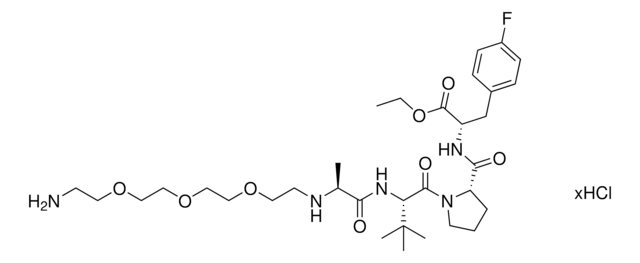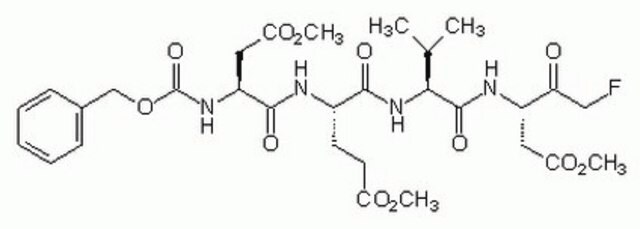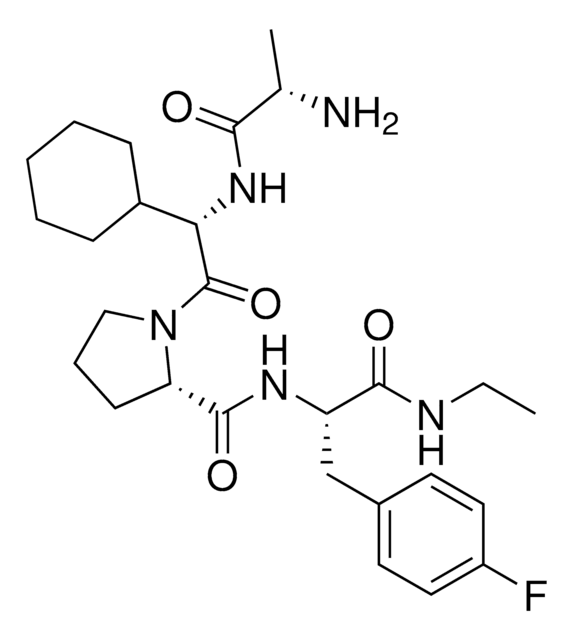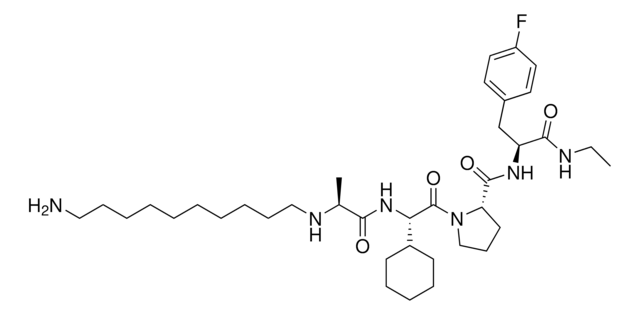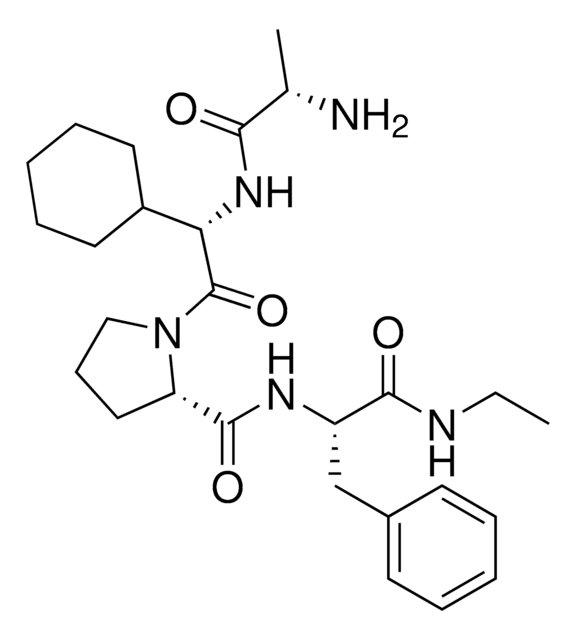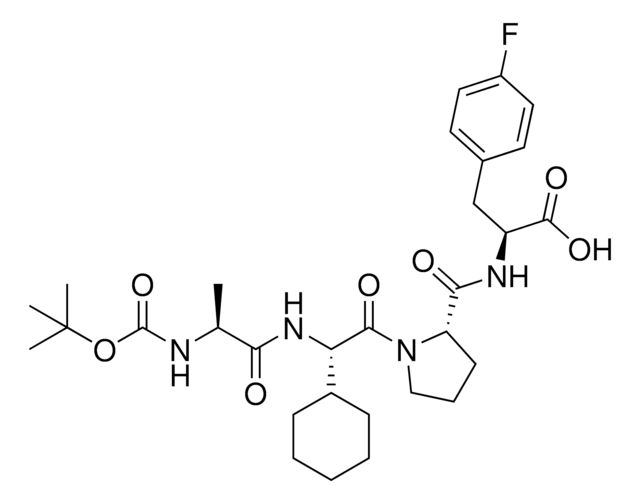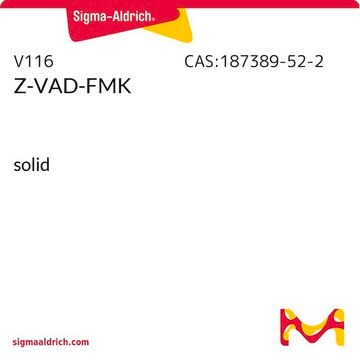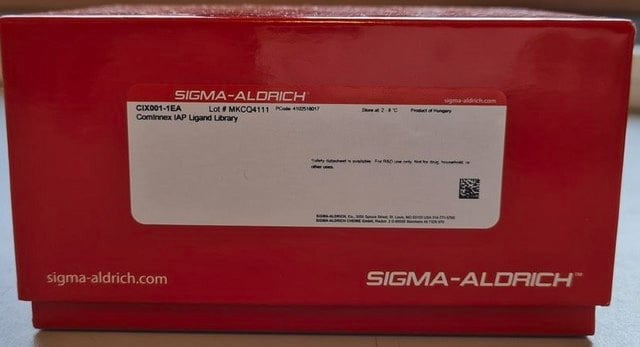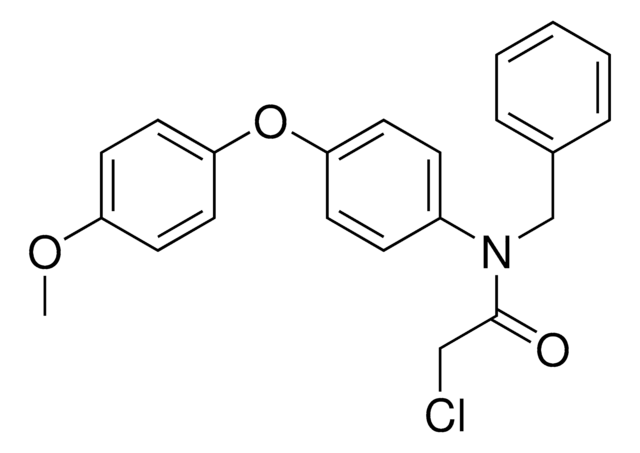917710
A1V1PF2-OEt
≥95%
Synonym(e):
AVP ligand, Ethyl (S)-2-((S)-1-((S)-2-((S)-2-aminopropanamido)-3,3-dimethylbutanoyl)pyrrolidine-2-carboxamido)-3-(4-fluorophenyl)propanoate, IAP E3 ligase lead for protein degrader research, SNIPER building block
About This Item
Empfohlene Produkte
ligand
A1V1PF2
Qualitätsniveau
Assay
≥95%
Form
powder
Eignung der Reaktion
reagent type: ligand
Funktionelle Gruppe
amine
Lagertemp.
2-8°C
SMILES String
N[C@H](C(N[C@H](C(N1CCC[C@H]1C(N[C@H](C(OCC)=O)CC2=CC=C(C=C2)F)=O)=O)C(C)(C)C)=O)C
Verwandte Kategorien
Anwendung
A1V1PF2-OEt conjugates are also available for degrader synthesis. Browse our full synthesis offering here: Browse our full synthesis offering here for streamlining SNIPER and PROTAC® degrader libraries: Degrader Building Blocks
917427 A1V1PF2-OEt-C6-NH2 hydrochloride
917672 A1V1PF2-OEt-C10-NH2 hydrochloride
917923 A1V1PF2-OEt-PEG1-NH2 hydrochloride
916676 A1V1PF2-OEt-PEG3-NH2 hydrochloride
Technology Spotlight: Degrader Building Blocks with Inhibitor of Apoptosis Protein (IAP) In Silico-Derived Ligands
Sonstige Hinweise
Rechtliche Hinweise
Ähnliches Produkt
Lagerklassenschlüssel
11 - Combustible Solids
WGK
WGK 3
Flammpunkt (°F)
Not applicable
Flammpunkt (°C)
Not applicable
Analysenzertifikate (COA)
Suchen Sie nach Analysenzertifikate (COA), indem Sie die Lot-/Chargennummer des Produkts eingeben. Lot- und Chargennummern sind auf dem Produktetikett hinter den Wörtern ‘Lot’ oder ‘Batch’ (Lot oder Charge) zu finden.
Besitzen Sie dieses Produkt bereits?
In der Dokumentenbibliothek finden Sie die Dokumentation zu den Produkten, die Sie kürzlich erworben haben.
Artikel
Targeted protein degradation reduces disease-relevant proteins in cells using small molecules, hijacking endogenous proteolysis systems.
Plate of 80 ligands against E3 ligase IAP designed by ComInnex; allows creation of bifunctional targeted protein degraders or molecular glues.
Protein Degrader Building Blocks are a collection of crosslinker-E3 ligand conjugates with a pendant functional group for covalent linkage to a target ligand.
Unser Team von Wissenschaftlern verfügt über Erfahrung in allen Forschungsbereichen einschließlich Life Science, Materialwissenschaften, chemischer Synthese, Chromatographie, Analytik und vielen mehr..
Setzen Sie sich mit dem technischen Dienst in Verbindung.